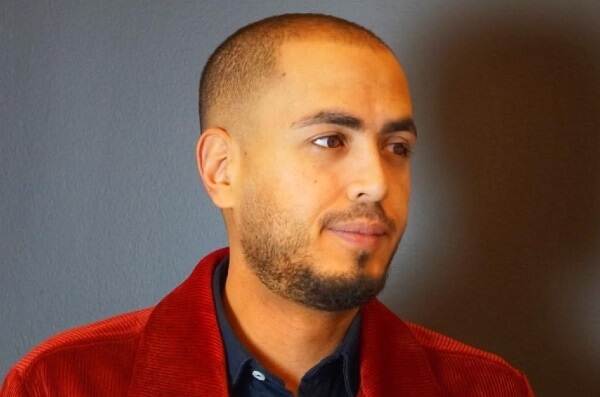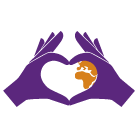Child refugee from Yarmouk plays vital role during COVID-19
Kotada Yonus, a former child refugee, is the founder and CEO of one of Sweden’s biggest news agencies Aktarr. It might sound surreal until you meet Kotada Yonus. This is his story about the power of will and entrepreneurship.

Kotada Yonus runs Aktarr, a news and media agency in Malmö, Sweden. Aktarr focuses on serving Swedish news in Arabic, the second most-spoken language in Sweden.
Aktarr is bridging a communication gap between the community and the larger society as well as state institutions, which has proven vital, especially at times of crisis, like COVID-19.
The importance of communication during a crisis
Question: Why was Aktarr and how does it operate? How does it feel being such a crucial part of the pandemic?
Once a Danish professor told me that the true value of our service would not be understood until we found ourselves in a serious crisis. With COVID-19, we found this was true.
In Sweden, Arabic is now the most spoken language after Swedish. While many migrants speak Swedish, it is difficult to understand health terminology in second languages, and many people were missing out on the government’s guidance. In response, Aktarr, as an agency, is providing the tools and platform where facts and timely updates about the virus are provided in Arabic. We’re sharing direct and concise facts on how the virus spreads, and how to avoid infection.
In a time of the widespread misinformation, it’s part of our mission and societal duty to help guide the community as they try to stay healthy during the epidemic. It makes me very proud to know that we made an impact in a time of crisis, at a time when the world really needed our help. I hope that in a couple of years I will be able to look back and feel that I did something positive, and did not just bunker up at home, buying all the toilet paper and pasta. I helped Sweden to communicate, I helped Sweden to overcome the crisis.
Growing up as a refugee in Yarmouk refugee camp
Question: How has growing up as a refugee affected your life? What skills did you learn on your migration journey and how have you leveraged those skills to arrive where you are today?
I usually avoid questions related to my personal story and how it was growing up as a refugee. I never liked to talk about it. I always tried to direct the conversation towards the future instead. I don’t want to get stuck in the past. I’m proud of my background, but often starting a conversation about the past is victimizing for refugees. A victim is only seen in negative terms, as a person in need of rehabilitation, not as a valuable contributor and forward-looking person. We are all human with big dreams at the end of the day, we are just born in different environments.
I grew up in Yarmouk refugee camp, the largest concentration of Palestinians outside Palestine. Yarmouk is a surreal place south of Damascus, where things have different meanings: it is ‘temporary’ but it is also permanent, it is not homeland but is home, and it is concrete but is also a camp.
In Yarmouk you learn how to be dynamic, effective and entrepreneurial by birth. In Yarmouk you understand early that the world around you is unfair and needs to be changed, but that you can only count on yourself. You learn that you need to work much harder to compensate for what you don’t have. You have to be solution driven.
To be seen as normal citizens and have some kind of security, we had to shape our own lives. I grew up with this mentality. We did not inherit capital in the form of money. Instead we inherited the drive for success, which could be through education or as entrepreneurs. For me, this drive helped start up Aktarr. I want to show that refugees are not a problem to society. Refugees can be of great assistance, but only if they are entitled to the same rights as everyone else.
It is always possible to start over again
Question: What would you like to share with other young people with ambition who are starting over?
It is always possible to start over again if you change your mindset a little bit. It’s easy to sit and complain and say that the world is unjust and so on, but it takes action to avoid being cemented in the same place.
When I came to Sweden, I already had a lot of skills from Damascus, but I still needed to start all over again with a European education, social network, new systems, language, and business ideas.
The most challenging part about starting over was finding a new network. Once I built a network, I could enjoy my new life, which I love. I had a life in Yarmouk, but unlike many, I was privileged to be able to start again, which only increases as you have more perspectives and experiences in life.
You decide yourself where your life is going and how to become a better person. I had to drop lots of things from the past — things like anger and resentment.
The future of entrepeneurs in a post COVID-19 world
Question: What lessons could be learned for other entrepreneurs in a post COVID-19 world?
Take control over your situation and life by thinking from a long-term perspective, not just two, three or five years. Be as flexible and thorough as possible. Learn how to deal with uncertainties.
When you live in a world that is uncertain, you have to think outside of the box and be prepared to adapt. Over time, you learn how to handle the stress and use it as a constructive force.
It’s so important to empathise; that’s how you learn from others’ situations. There are people who don’t have access to basic needs and live in precarious situations all the time.
Our lives are so connected, so my advice would be to help others wherever you can with whatever you have. This crisis has shown that you are not special, but part of something bigger than any one person.
Published by UNICEF
This interview with Kotada Yonus was first published as a blog on unicef.org: How a child refugee from Yarmouk plays a vital role during COVID-19.
Kotada Yonus at Youth at Heart
Kotada will be present at the Youth at Heart forum in Studio Blue: Reimagine Talent on the Move- UNICEF.

Watch the virtual forum on YouTube
Do you want to hear more stories from youth in Africa and the Middle-East? The Dutch Ministry of Foreign Affairs organised the virtual forum Youth at Heart. Here young people from the Middle East and Africa discussed their experiences and thoughts about education, work and participation.
All sessions of the Youth at Heart virtual forum that was broadcasted on 2 November 2020, can be watched on our YouTube channel: Livestream 4 studio's on YouTube